Management of regulated waste
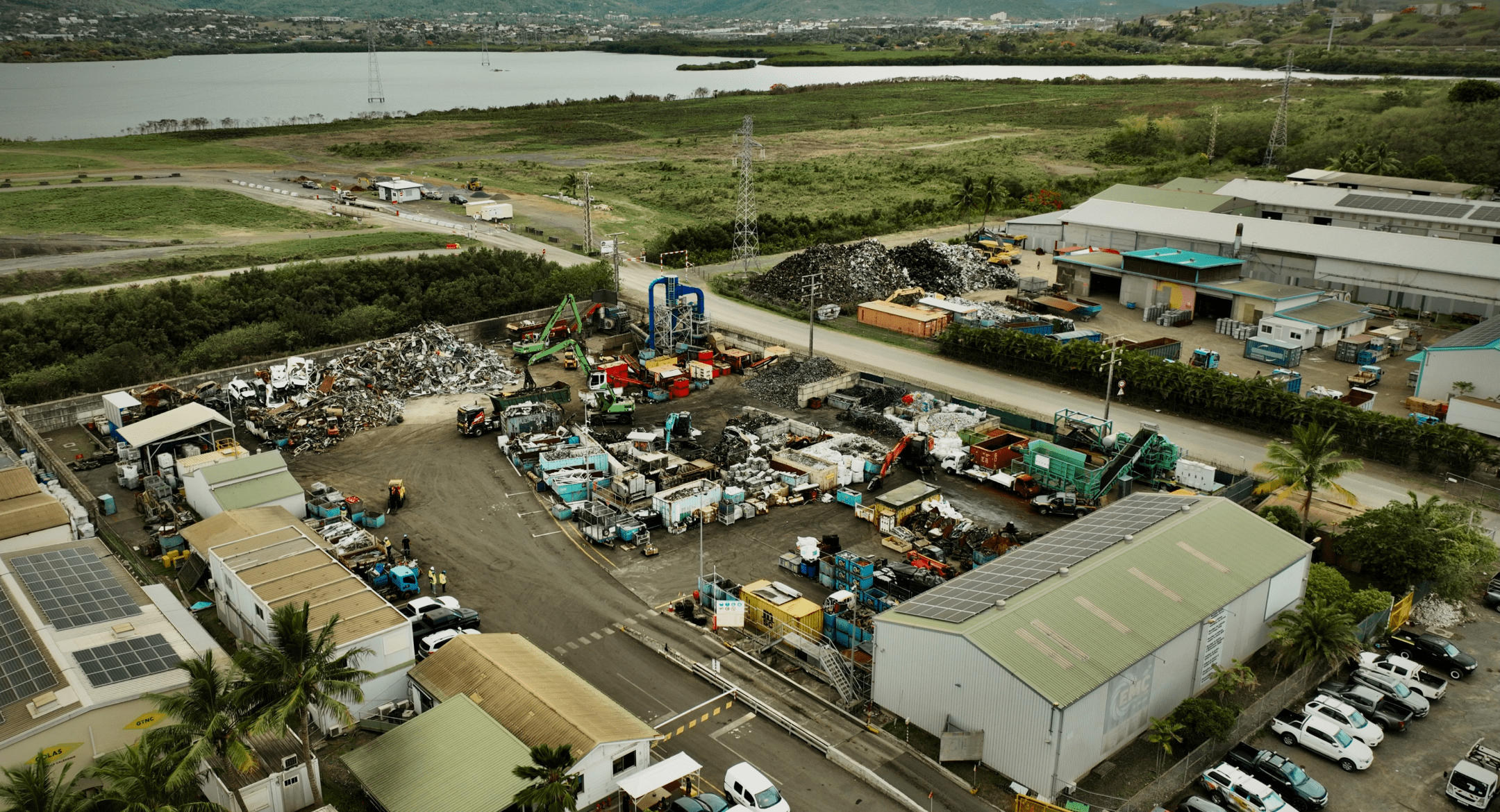
Each regulated stream, its own treatment
The Southern Province is reinforcing the organization of waste management streams, some of which are governed by Extended Producer Responsibility (EPR), based on the “polluter pays” principle. Producers must develop a waste management plan for the waste they generate. If this plan meets the stream’s specifications, an approval valid for a maximum of five years may be granted. Producers can fulfill their obligations either individually or collectively, in partnership with an eco-organization accredited by the Southern Province. EMC plays a key role in the treatment of these regulated waste streams.
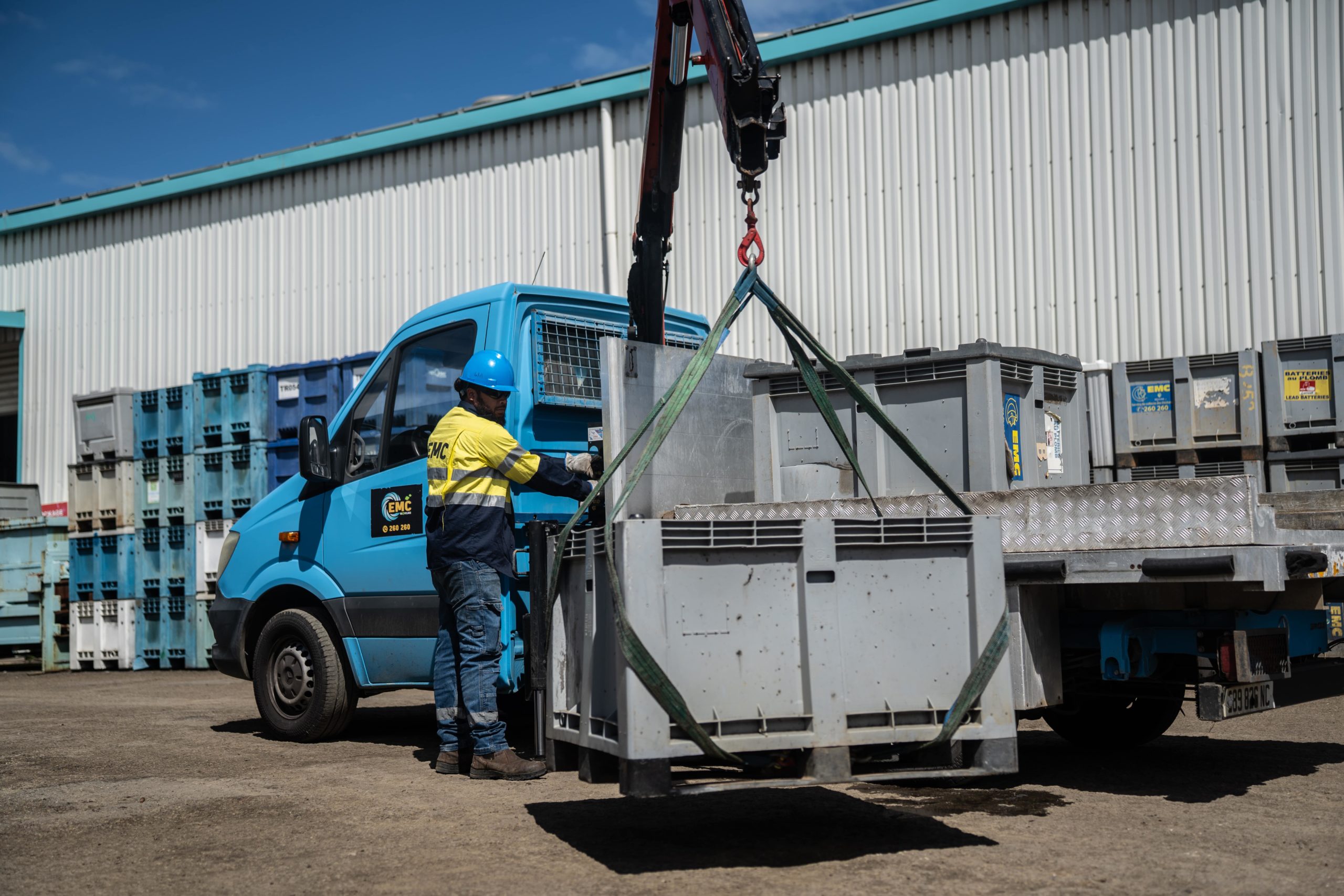
Lead-Acid Batteries (LABs)
We offer free collection of all used lead-acid batteries, either directly from our clients or at Voluntary Drop-Off Points (QAV). EMC also receives used lead-acid batteries, which are then handed over to our partner ETV for packaging and export to certified treatment centers, where components (lead, acid, plastic) are recovered.
Over 500 tons of used batteries collected each year.
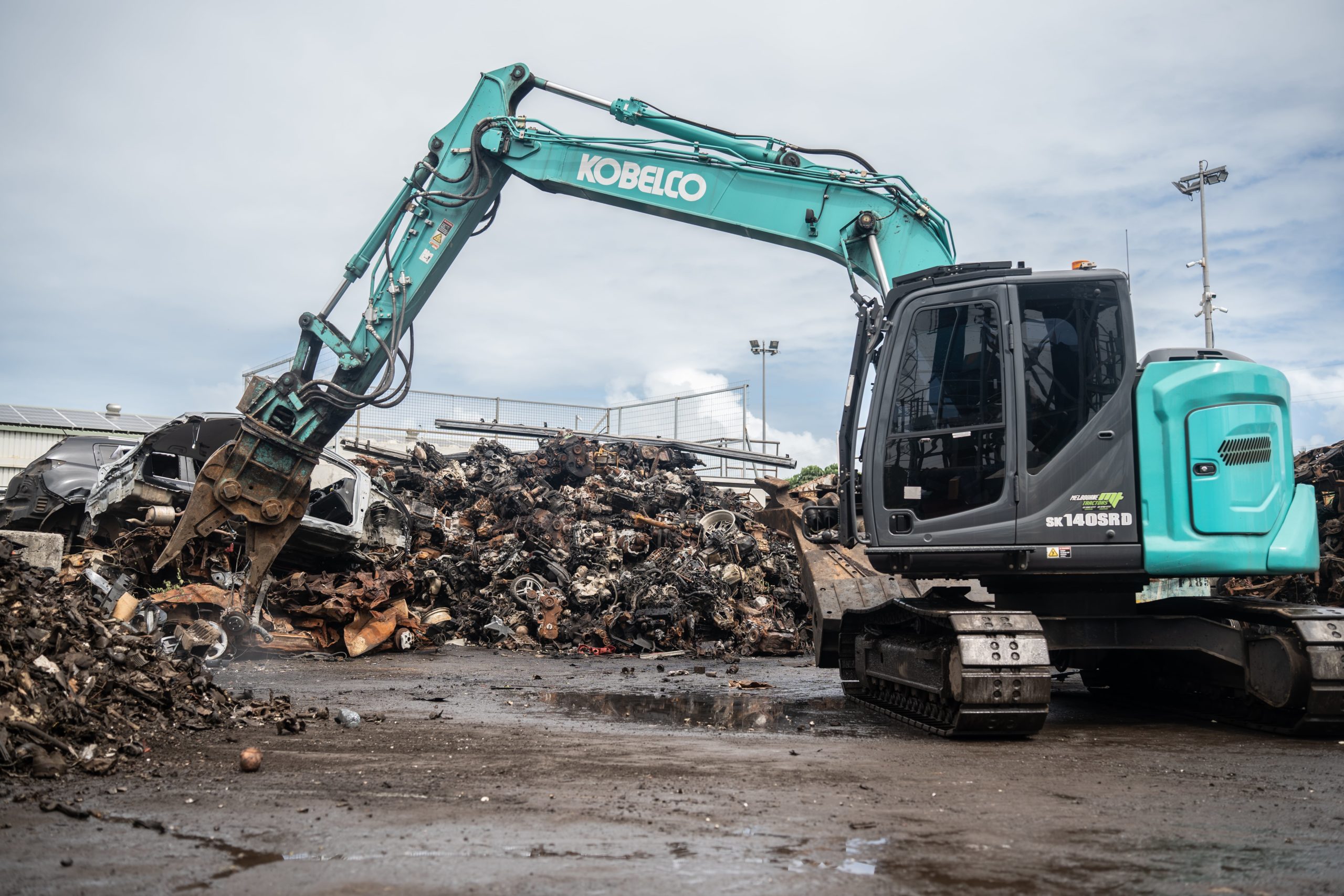
End-of-Life Vehicles (ELVs)
If you own a vehicle at the end of its life, we assist you in the treatment process after obtaining a certificate of deregistration from the DITTT.
When an ELV is received at our facilities, it first undergoes depollution. We remove hazardous components such as fuel, coolant, windshield washer fluid, oils, the battery, etc. These wastes are then transferred to certified service providers for treatment.
After depollution, the vehicle is dismantled by our team, who remove the chassis, gearbox, combustion engine, seats, interior padding, dashboard, and more before sending it to the scrap metal shredding line.
The final product, in the form of shredded scrap (SHREDDED 210/211), is stored at our Doniambo site before export.
Approximately 3,500 end-of-life vehicles processed per year.
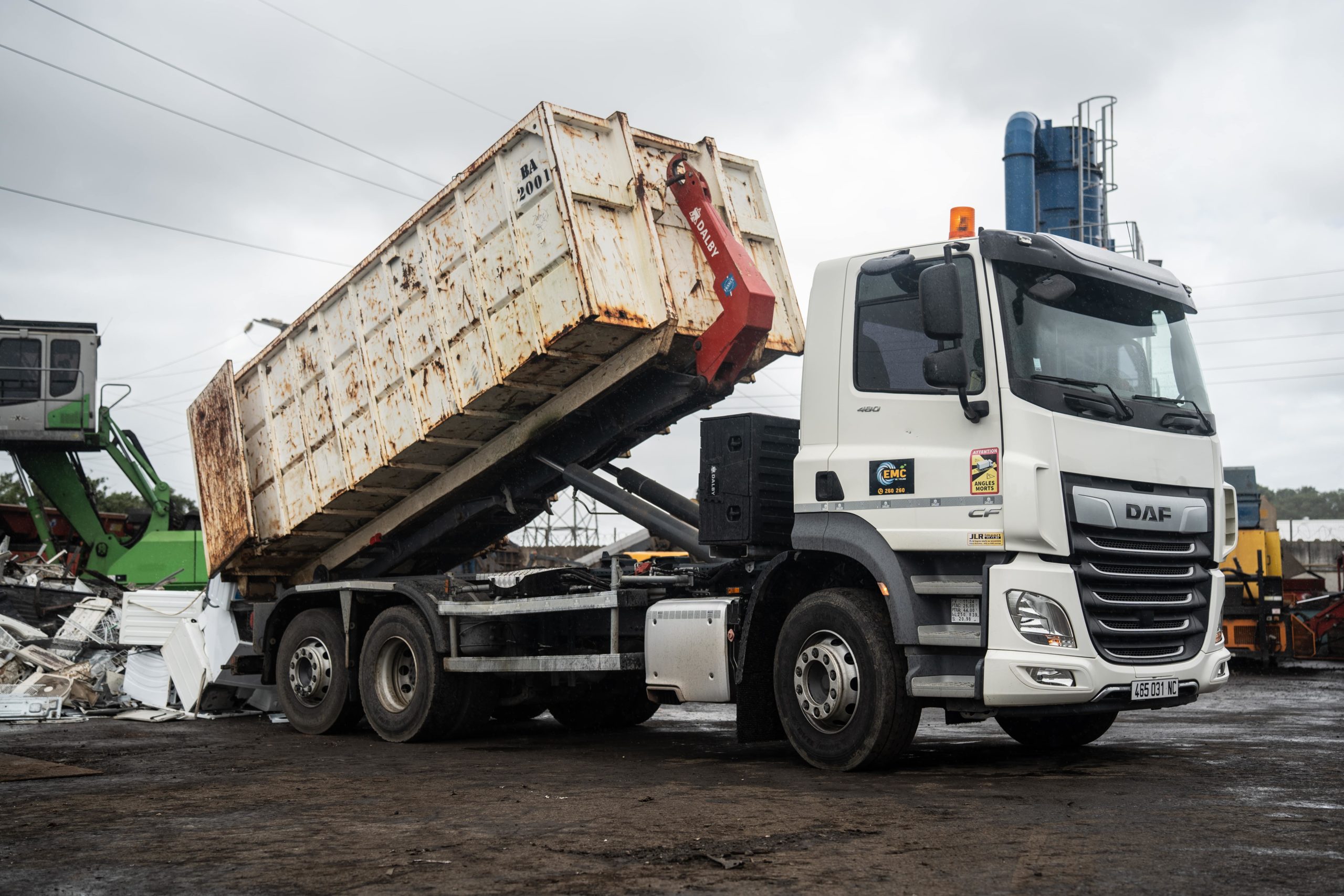
Waste Electrical and Electronic Equipment (WEEE)
We handle Waste Electrical and Electronic Equipment (WEEE), including large household appliances, whether refrigerated or not. Refrigerated appliances (cold LHAs) such as air conditioners and refrigerators must be depolluted before acceptance at our facilities.
However, large household appliances excluding cold (non-refrigerated LHAs) such as stoves, ovens, washing machines, and dryers do not require depollution prior to treatment.
All these appliances are then fed into our scrap metal shredding line and transformed into shredded scrap (SHREDDED 210/211), ensuring responsible recycling and optimal material recovery.
1,200 tons of WEEE processed each year.
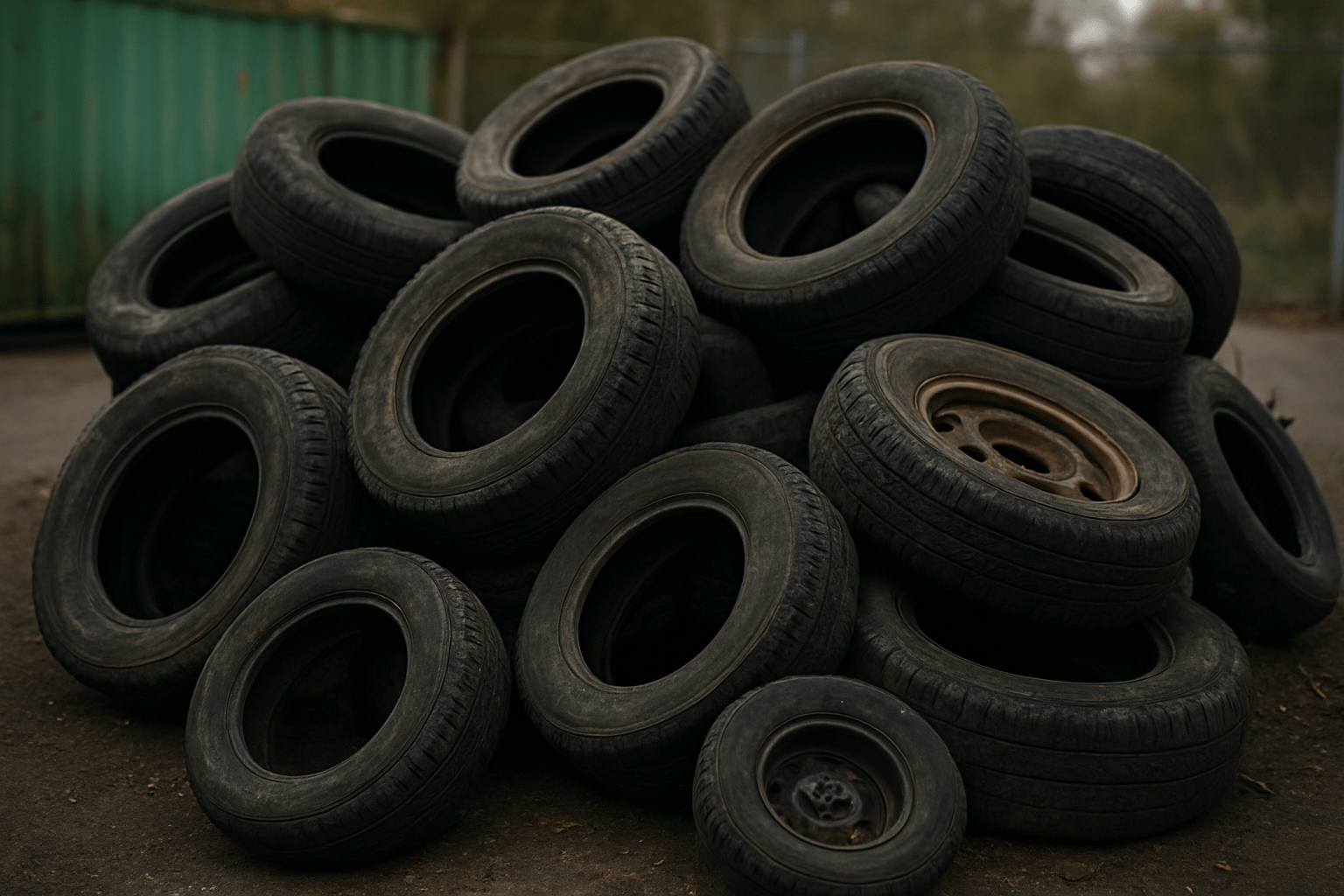
Used Tires (UTs)
EMC is a key player in this stream, providing collection and treatment services for used tires from light vehicles (UT LV), heavy trucks (UT HT), and civil engineering machinery (UT CE).
We collect these tires through voluntary drop-off points (PAV) located across the territory, particularly at Southern Province recycling centers and selected automotive repair centers designated by TRECODEC.
Once collected, the used tires are transported to our facilities for treatment.
Thanks to a 150 million CFP investment in 2019, EMC established a new tire shredding line, increasing treatment capacity to meet the stream’s growing demands. The tires are shredded and transformed into “tire chips.”
The final product, Tire-Derived Fuel (TDF), is an alternative fuel used by certain industries, such as cement plants, to partially replace fossil fuels—contributing to sustainable waste management and carbon footprint reduction.
Production capacity of 7 tons per hour.
Got a question?
Contact our experts
-
14 avenue de la Baie de Koutio, Ducos, 98800 Nouméa
Opening hours: Monday to Thursday from 7 a.m. to 4 p.m. and Friday from 7 a.m. to 3 p.m.
(No non-ferrous metal purchases between 11 a.m. and 12 p.m.) -
14 avenue de la Baie, Doniambo, 98800 Nouméa
Opening hours: Monday to Thursday from 7 a.m. to 4 p.m. and Friday from 7 a.m. to 3 p.m. - (+687) 260 260
- secretariat@emc.nc